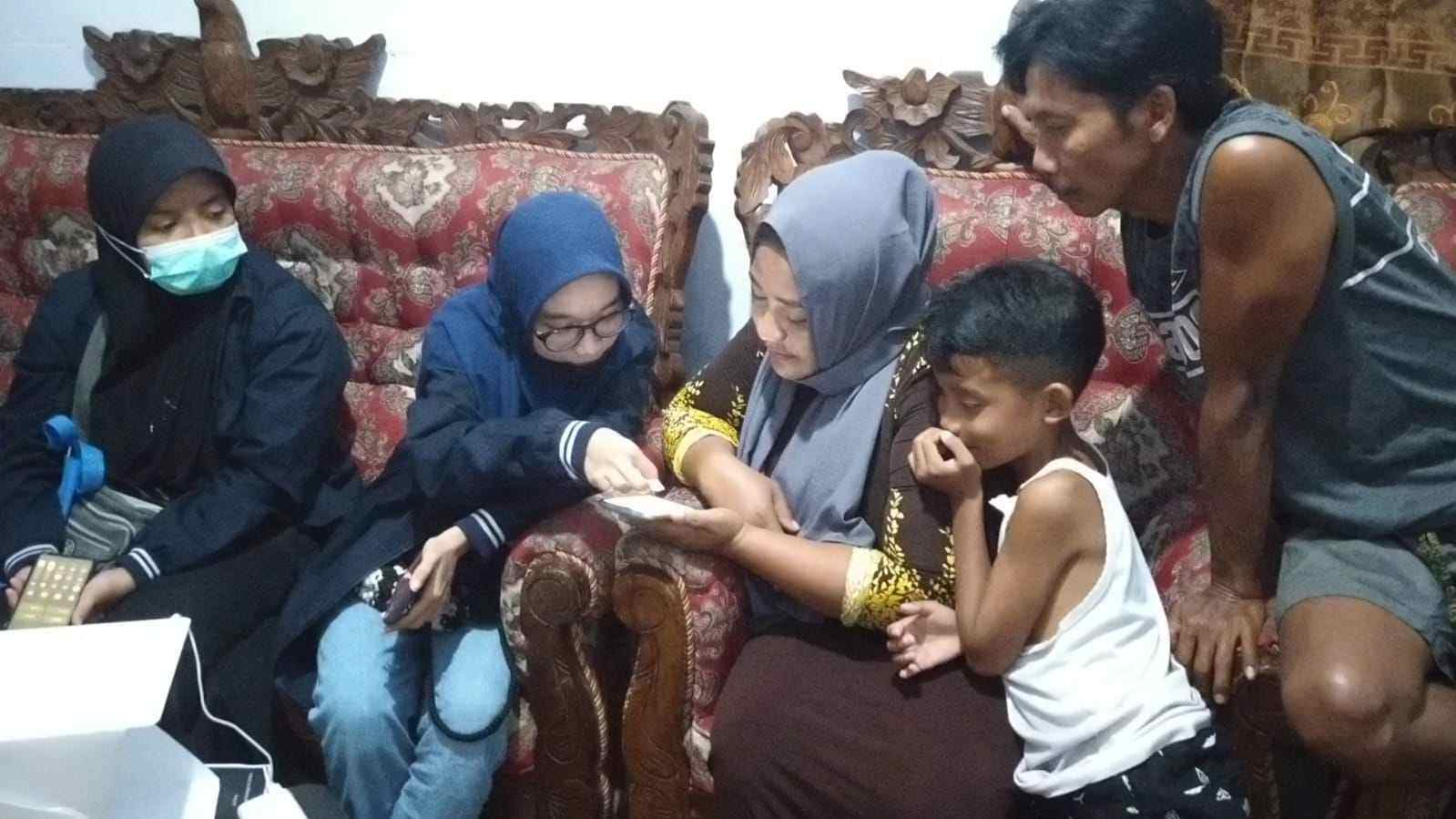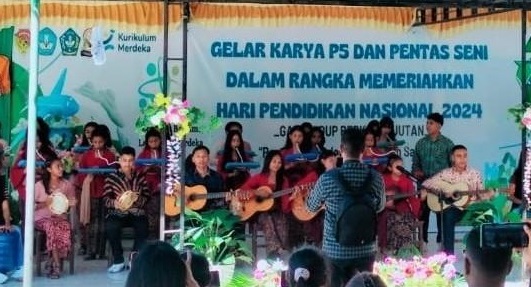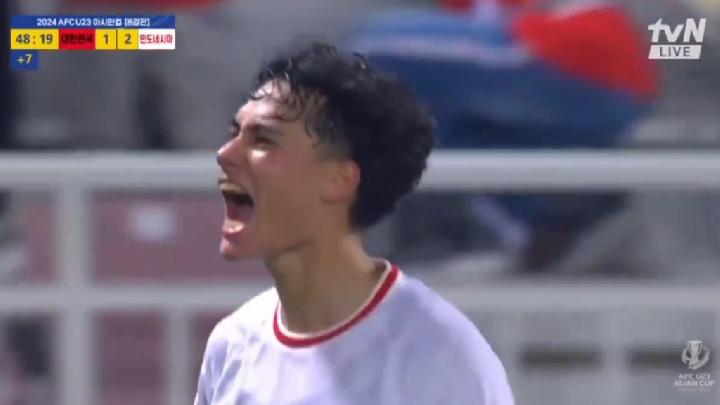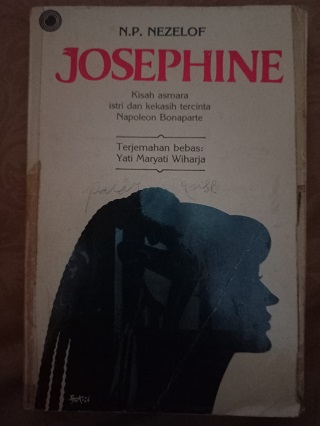The juvenile deliquency, bullying, acts of anarchy, mass fighting, crime, corruption and other deviant behaviours have spread throughout Indonesia for years. The phenomenon could show the failure or weakness of the nation character building program. Like the tip of the iceberg that the social problem may be quantitatively larger than is revealed. Therefore, some social observers indicated the moral degradation has occurred and is a symptom worsening human morals in this Country. The conditions above can be understood to some extent as a result of deterioration of the performance of the national education system.
Education is actually an important part in improving the human quality. In Undang Undang Sistem Pendidikan National (the Law of National Education System) number 20 of 2003 chapter 2 section 3 states that education serves to develop and form the character and civilization of the nation's dignity. Education aims at developing the potential of learners, especially, to become a man of faith, fear of God Almighty and noble behavior. The main goal of this national education in the Law of 2003 has actually developed into more complete than previous laws (year 1989 and 1954). However, the education results are still not achieved as expectation. Yet, Indonesian education on massive scale cannot build moral sublime and the nation virtuous character.
According to T. Raka Joni (2005) that teaching praxis in the field glued to the forwarding information in the form of the ability to memorize, retention, recalling or rote. In the field even degenerated into nothing more than the content transmission of the textbook. In fact, the recalling, rote and retention activity in term of education theory is still in the low-level thinking skills (low cognitive skills).
Furthermore, in the learning evaluation concept the assessment for cognitive domain is quite different from affective domain. The first one is to measure the intelectual capacity (academic ability) awhile the second one contained in the assessment-related affective moral, ethical and noble human values. Based on the predetermined education goals students should have these cognitive and affective capabilities across subjects delivered by teacher. The academic ability can be measured at least through the various paper and pencil tests, The affective domain is very typical, must be observed and cannot be measured through a written test alone, because it is visible (moral action). Therefore, to measure the students’ learning achievement need to have a portfolio performance evaluation.
In fact, practical teaching and learning process in schools still focus on cognitive aspect only. Teachers, principals and even the stakeholders of education have the same paradigms that are embedded strong enough on their pride in the academic achievement and cognitive intelligence.
Daniel Goleman (1995) puts IQ or intellectual prowess as a representation of the domain of cognitive intelligence, whereas emotional skill is in affective. After observing for a long time, Goleman concluded root of problems in various facets of life in households, schools and workplaces is not in the intellectual faculties (IQ capacity) but due to emotional torpor. This finding is consistent and has a slice with the theory of multiple intelligences (Howard Gardner, 1993, 1999) that sparked the idea of learning a multiple ways of knowing. The finding is also in line with the theory of Triarchic intelligence of Robert Sternberg (1985; 1995; and 2003) in the form of synergy ability to analytical, synthetic thinkings and practical
The Goleman’s study result indicates about 80% of the biggest share for an individual success performance in the household, school and in the workplace is emotional intelligence (non academic ability) and the contribution of intellectual skills (academic ability) is only less than 20%. Based on very common perception, a favorite school is measured by the academic activity and achievement. The higher the academic achievement of the school is considered the better. This paradigm has been developed within the school milieu and already spread to the wider community. Therefore, learning in school tends to prioritize cognitive thinking skills and intellectual capability of students.
Then, the main and final evaluation of students' learning ability is only done through the Ujian Nasional (UN) or the national examination. In fact, the written test as a measure of learning achievement is partial, which measures cognitive aspect only.
Pre-post tests strategy that is usually done by teachers in measuring the achievement of learning objectives of each meeting actually still pieces of information in the form of memorization. Evidence of achievement of the objectives within a span of one hour or obtained through such tests are very naive to be said to have a depth of meaning. In fact, assessment of student learning outcomes in schools is still not prepared on a complete evaluation, thorough and precise (a proper portfolio performance evaluation).
Goleman and Gardner elaborate emotional intelligence as the personal skills which are to manage the person’s intra and inter-personal skills. Good emotional mastery can make someone more humane and wise. Individuals who lack self-control will affect the social attitude of insensitivity. This means there torpor on emotional intelligence, so that the personal skills of such person becomes problematic.
Academic ability to be in cognitive intelligence that upholds intellectual power as known as the hard skills, while emotional intelligence or personal skills is in the affective domain and popularly called soft skills. Despite the academic ability (hard skills) remains important, but teachers and principal should pay more serious attention to the development of soft skills in school. Moreover, some research results at the level of PAUD (Early Childhood Education) and SD (Elementary School) showed that schools’ attention on soft skills by training and development programs within a specific period, in turn, were significantly correlated to the quality of students’ academic ability (see Aries Musnandar, 2016). So that, through the right and holistic educational programs on soft skills will realize better academic ability.
The term soft skills is more commonly used by people rather than emotional skills and in regards to replace the term EI (Emotional Intelligence). The opposite of soft skills are hard skills (academic and intellectual capacity). Both are contrasting but needs to be integrated in such a way into the subjects taught. Students should have the hard skills and SS across discipline. SS is not solely in the form of ability to communicate directly (verbal and non-verbal communication) with other people, but also ability to present themselves as well as give a positive impression to others in building human interaction.
Other research finding has shown that teachers who have attended SS training programs and possesses correct perception of SS positive affect students’ learning achievement positively (see Aries Musnandar, 2016). Therefore, creating appropriate SS based holistic education in schools is necessary
By Aries Musnandar
Researcher & Education Observer
Pascasarjana Maulana Malik Ibrahim State Islamic University (UIN) – Malang
Ikuti tulisan menarik Akal Sehat lainnya di sini.





















